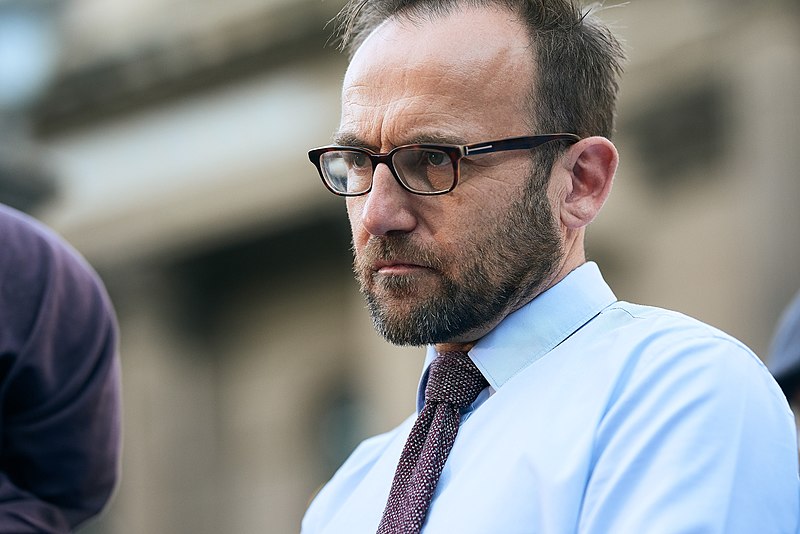IN THE MEDIA
On Israel and the Palestinians, Greens party like it’s 1947
June 14, 2023 | Ahron Shapiro

A version of this article appeared in The Daily Telegraph and The Courier-Mail – 14 June 2023
The federal Greens resolution on “Israel/Palestine”, passed in the party’s national conference on June 4 – the party’s first revision to its “Israel/Palestine” policy in 13 years – is more of a swan song than an update.
In a race to the bottom with activist MPs and a rabidly anti-Israel base, the party’s official policies have finally caught up with its tweets. As a result, they’ve found themselves untethered from real-world foreign policy and international diplomacy. Like the left-wing NGOs that it credits for its factually baseless linkage between Israel and “apartheid”, the Greens have voluntarily written themselves out of any serious discussion of policymaking regarding the Middle East.
The Greens 2010 resolution, for all its flaws, couldn’t be faulted for its common sense baseline support for the Israeli-Palestinian peace paradigm of two states for two peoples, with some concept of practical borders and shared capitals. So what if, over the last 13 years, the party’s elected officials often expended their energies blaming and demonising Israel instead of supporting genuine efforts at peace-building? At least there was an underlying policy they could point to – even if they largely weren’t following it.
So much for that. Sunday’s update buries the Greens’ support for two states. Look for the concept in the policy and you won’t find it. In its place is a murky endorsement of the “right to self-determination” for Palestinians and “Israelis” (not “Jews”) – whatever an “Israeli” is supposed to be at the end of the day, since the Greens appear to want to have final say in that matter. Not to worry – the Greens will decide, and in their new policy, they’ve decreed that millions of Palestinians have a (nonexistent) legal “Right of Return” to Israel, guaranteeing that Israel will be replaced by a majority Arab state. Just in case those meddlesome Israeli Jews disagree, the Greens “support the establishment of international mechanisms guided by international law to facilitate this outcome”. So there.
And if a Jew in Lod and his Arab neighbor on the next block, or even the next apartment can’t agree on the thorny matter of who has the right to “self-determination” and how it should be implemented, what happens? The Greens can’t say – but we’ve actually seen this movie before. It describes the situation in the aftermath of the UN partition plan of November 29, 1947, which oddly enough, proposed two states for two peoples, a Jewish state and an Arab state. The Jews accepted it, the Arabs violently rejected it, and in the months that followed every square meter of the country was contested in what was essentially a brutal and very bloody civil war.
By May 1948, Israel’s declaration of independence – established in line with the partition plan -was greeted by an invasion of five Arab armies. Against all odds, Israel prevailed – though more than 1% of its total population was killed. Regrettably, some 750,000 Palestinian Arabs either fled or were forced out amidst the fighting and became refugees. Shortly thereafter, a similar number of Jews were forced out of Arab countries, most took refuge in Israel and their descendants now constitute the majority of Jews in Israel, a country whose population has grown tenfold since 1948.
This is one reason why every peace plan has assumed, as a matter of practicality, that a future Palestinian state would be the place for Palestinian refugees to return to. Past statements by Palestinian President Mahmoud Abbas and Palestinian negotiators have acknowledged some acceptance of this reality. On at least three separate occasions – in 2000, 2001 and 2008 – Israel has offered the Palestinians concessions for a final peace agreement that would see Israel evacuate dozens of isolated settlements and retain only the settlement blocs in exchange for mutually agreed land swaps with territory inside Israel. Yet at the moment of truth each time, Palestinian leaders broke off talks without providing a counteroffer.
It’s still not too late. The Palestinians don’t need to forget the past in order to say yes to a bright and independent future. Yet how ironic it is that in order to do so, they will have to overcome not only their own peace rejectionists, but also the regressive policies of their “friends” in the Australian Greens, who insist they must remain hostage to the mistakes of 1947.
For their own good, of course.
Ahron Shapiro is a senior policy analyst at the Australia/Israel & Jewish Affairs Council.
Tags: Apartheid, Arabs, Greens, Israel, Palestinians, Self-determination





